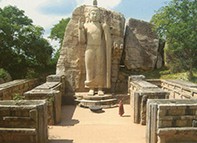The illusion of permanence
All in life is subject to change, reflects Dr Wijesinha.
I first met Sergeant Silva at the time I started working at the military hospital. I was then a young army doctor who had just graduated from the Sri Lanka Military Academy, with a Captain’s stars on my epaulettes and plenty of training under my belt, but with virtually no experience or understanding of how the real world functioned.
Sergeant Silva, on the other hand, had been an army medic for many years, and what he did not know about grapevines, networking and military administration was not worth knowing. He certainly knew more about running a medical centre than I did, despite my rank and qualifications, but importantly he knew how to tell me what to do without letting me feel that he was telling me what to do.
Every morning when I turned up at the medical centre at 8 am he would be there. Standing briskly to attention, he would snap off a regulation salute, greet me with a formal ‘G’morning, Sir!’ and get me organised with the morning’s work. It would be true to say that most of what I learned about practical military medicine I picked up from Silva.
Keeping in touch
As time went by our paths diverged and we both went on to other postings. We would meet from time to time, when he would still greet me with a respectful salute before we got down to exchanging news and views. It was always nice to see him, because I never forgot how he had helped me in my younger days.
Shortly before I left the army, he came to see me to ask me for a reference because he wanted to apply for a job in the Middle East. I gave him a glowing reference, for which he was most grateful. A few months later I received a letter from him informing me that he had been selected by the Royal Oman Police to be in charge of one of their medical centres.
It was a couple of years before I saw him again, when he came to visit me on his return from Oman. He still had a military bearing and although we were both now civilians and no longer separated by rank, he still addressed me as ‘Sir’. He told me that he was going to retire to his wife’s home town in the south, where he could live comfortably on his army pension and Middle East earnings.
We continued to keep in touch, exchanging New Year cards even after I migrated to Australia. One year, instead of the customary card, I received a letter addressed in his familiar neat handwriting. The letter began, ‘Sir, I am sorry for not informing you earlier of my decision to become a Buddhist monk. I was ordained last month and am now residing at the Sankapala monastery...’. The letter was signed, not as his letters usually were ‘Yours respectfully, BN Silva’ but ‘With blessings and loving kindness to you and your family, Ven. Dhammarakhita’.
Changing times and relationships
I decided to visit my old friend to pay my respects, so a few months later when I visited Sri Lanka I drove south to the ancient monastery of Sankapala, a picturesque rural haven amid rice fields and coconut trees. Originally established by the ancient Sinhalese kings, Sankapala has been home to Buddhist monks for almost a thousand years. One feels a sense of serenity and timeless peace as one enters the place.
We waited patiently outside Ven. Dhammarakhita’s dwelling until the robed monk came out. He still had a military bearing, but now his head was shaved and he was clad in saffron robes. When he saw me he looked down and smiled. I knelt, placed my palms together and respectfully made obeisance to him, and after he had sat down on his chair I sat on a mat at his feet.
How times and relationships change. Once upon a time, he would salute me and call me ‘Sir’; now I was bowing down to him and addressing him as ‘Venerable Sir’. In days gone by, I would be teaching him about medications and how to prepare a patient for operation; now he was preaching to me about meditation and how to prepare myself for life after death.
As humans our roles and relationships are subject to so much change as the years go by. I have realised, in fact, that all life is subject to change. Our own lives are so impermanent, and truly there is nothing permanent in this world except, perhaps, the illusion of permanence. MT

